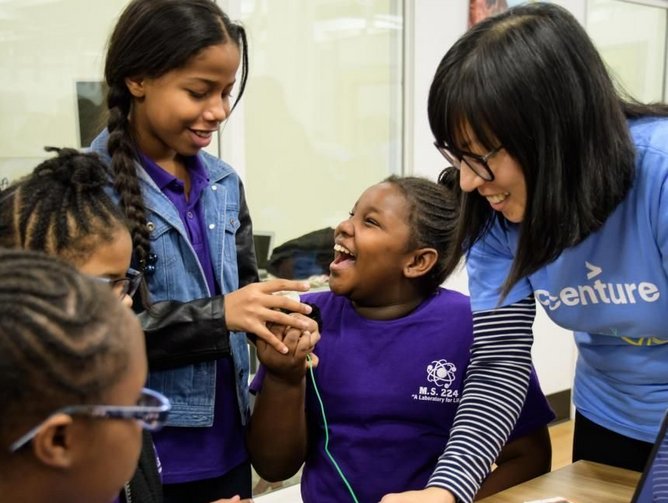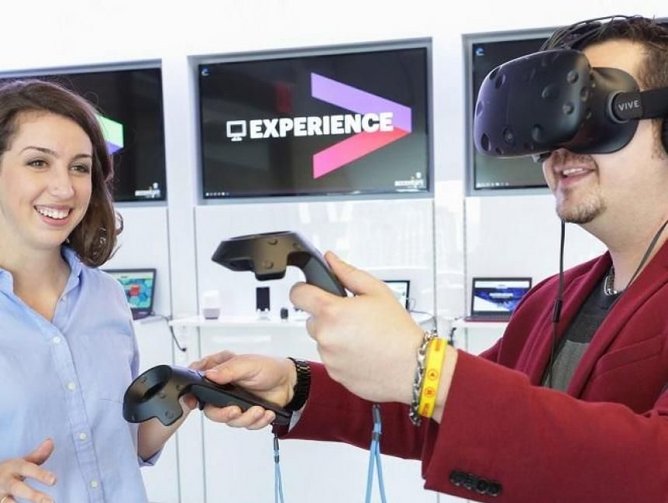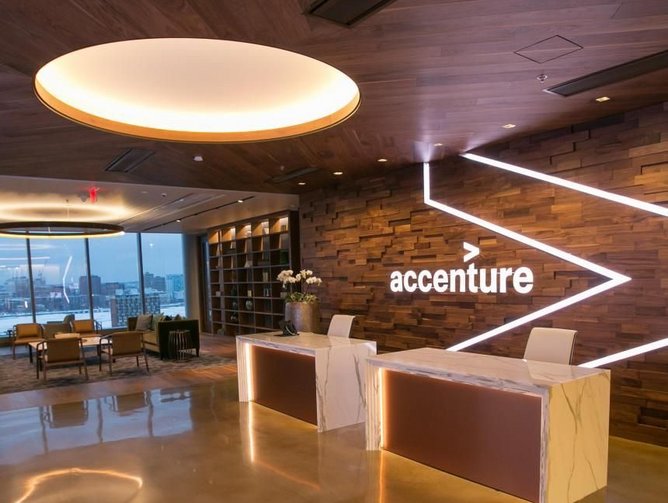Kai Nowosel, a highly experienced procurement professional – formerly of Sanofi and Deutsche Bank – is currently the Chief Procurement Officer (CPO) of global professional services giant Accenture, and he has a burning ambition. “I want to break the mould of traditional procurement,” he says. We caught up with Nowosel at Accenture’s Kronberg office, roughly a 20-minute cab ride from Frankfurt, where he sets out a detailed vision for the very future of procurement.
His ambition is to see it transformed from a traditional back office function into an area much more closely aligned with the top line.
“Where I want to really take the procurement function at Accenture is very clear. I want to transform it into a full business enablement function,” he says, easing back into his seat. “But to do that, I need to understand what’s out there. What is on their (the businesses’) mind every day and how can I support them to become more competitive?
“We have heard a lot, and have read a lot, about business partnering,” he says, ‘but for me, it's really not a single point of content or contact. It’s a single knowledge pool of understanding. It’s about translating procurement and supply market opportunities in order to correlate them into business. That is business partnering, for me. So, it's not like I am a caretaker. No. I want to sit at the table and have creative input on the commercial side of supporting the business. That’s one vision.
“The second vision is linked to the moment you’re sitting with the business and identifying new opportunities and optimising current initiatives and delivery,” he explains. “But to do that, you also need to understand what is currently delivered. So, you need to get much closer to the business. At Accenture, we call it ‘rotating to the New’. If you want to be more agile, you need to be faster. You need to be smarter in anticipating things, because just running a process faster doesn't make you better. To anticipate what's happening, and to already include that into your process, makes it much easier to work with a procurement function – you already have a solution before the concrete demand really happens. So, I want to drive my function into something of understanding and prediction rather than reaction.”
The third vision in Nowosel’s procurement manifesto lies in the collation and utilisation of big data. “And that is where I need technology and digital. I need the co-worker. I need the data, and I need, last but not least, access to the right content at the right point. That is probably one of the biggest things. Today a lot of effort is spent creating static content, and that is where I want to move away and say: ‘Our differentiator is not creating that content. Our differentiator is giving access to the right content.’ So, you need to understand the business to have the right access to the right content and, you need to have the right data understanding to really correlate and identify the right content by basically enabling it with the right rules, and with the right channels.”
Man machine
Nowosel can see a day when man and machine will work as one. “We need to rethink the way we use systems,” he says. “It's not just the user interface. The intelligence in the system needs to recognise me. It needs to say: ‘Hey, I know you have already purchased something. I know you're sitting in this type of business. I guess you're currently looking for these types of buys. This is what’s relevant for you to be successful.’ So, it's less anticipating the right product and much more anticipating the right demand by understanding the business. And that is a very different user interface than just making it a little bit more web-based and smartphone enabled. And for me that is one of the biggest things I would really like to break and move away from. I want to take a very traditional process flow and transform it into something that is an intelligent portal solution that really guides people to the right channels, seamlessly and intelligently.”
Does Nowosel ever envisage a time in the future where we could have an AI CPO? “When I worked in consulting, I wrote a point of view on the ‘organisation of one’. And yes, it was a provocation, and I don't think it will ever happen, because in every business you run, whether it's procurement, whether it's marketing, whether it's sales, whether it's R&D, we should never forget about the relationship component, and the human component. But will the role, or will the processes that we are currently performing, shift? For sure, they will. Can an artificial intelligence machine negotiate as good as a human being? I'm 100% convinced they can. We're seeing it already in the stock markets where we already have machines to machines. So why shouldn't it happen in a quite common negotiation? But that's why I'm saying that procurement is moving to something else. The definition of procurement is not 'am I a better negotiator?' It is more, 'am I the better ecosystem manager?' Or, 'am I the better window to innovation?'.”
It is possibly easy to theorise regarding future systems and processes, but is Nowosel currently putting these words into practice as CPO at Accenture? “Absolutely. That's where our big partnerships sit, and where our benefit – where my benefit – is. I am sitting in a company that basically invents digital solutions for implementation. I have access to all that.”
Accenture has just released a new procurement offering which Nowosel is visibly excited about as a practicing Chief Procurement Officer. “Because this is more than source to pay – which is not all that sexy. We call it Procurement Plus. Procurement Plus gives you a little bit of an indication that our procurement function has a vision that goes beyond a traditional procurement function, that also gives you an understanding about the size of the organisation.” So, what exactly is in the 'plus’?'
“From a Procurement perspective, I run all venture and acquisitions on a due diligence side and on the commercial synergy side. So, that in itself is already a big team. In the past three years Accenture has completed roughly 70 acquisitions, that is a lot of work to integrate and to bring it into the right process and supplier panel. And we are buying more and more diverse portfolios. So, in the past we bought a lot of IT and now that we own a lot of agencies, we even budget for things like hair, makeup and other logistics for photoshoots and so on – it's getting quite diverse. So, V&A to M&A is one. I also run all accounts payable, so I really have a P2P responsibility in that logic.
“I also run something which is extremely close to the heart of where I see Accenture and the function going, and that is supplier inclusion and diversity,” continues Nowosel. “So, I run all our corporate social responsibility agendas that are attached to our supply chain. I also run the contractor business – one of the biggest categories I oversee. I basically do all the contractor onboard identification, onboarding, background checking and qualifications – that is something that you typically would not see in a procurement function, but that you could potentially see in an MSP (managed service provider) setup. It's so close to our core business and is essentially the revenue driver. The size of my team is around 1,000 people as a result. If you think about what is known as traditional procurement, it's probably around double the size of a traditional benchmark.”
Managing risk
Nowosel is also keen to pinpoint the safety features of Accenture’s offerings. “It is extremely relevant that all the partners we are working with are following a very rigid process, a very clear playbook on how we assess and handle risk and controls,” he says. “Not only on our side, but with all the parties we are working with. Some of the players are much smaller, and therefore, we had to enhance the risk framework to something that is not just for the ‘big is beautiful,’ but also for the smaller, dynamic startups that probably have a completely different mindset. With regards to the size of the organisation that I'm running, I'm operating in 69 countries, so I can really claim it's a global function. It's definitely a global governance model that I’m running.”
Obviously, the role of the CPO has changed a lot over the years and the issues CPOs are presenting to Nowosel have also shifted. “I would say it's not just them coming to me, it's me, coming to them, with all the issues. I think the role of procurement has evolved big time. If you go back a little bit in CPO history, what have we always focused on is how will we put enough control, compliance and negotiation power into the process? And I don't think that is what the issue is anymore. The issue now is how do you find the right partners in the ecosystem? How do you mitigate the risk? How do you protect the brand? How do you get competitive? And getting competitive is more than having a great negotiated price. It is having the right solution for your customers at the right point. So, I see procurement moving very strongly away from a control and compliance and into a business function.
“One of the biggest discussion points I have with myself, but also with my peers in the market, is: What is our value proposition going forward? What is our reason of existence going forward? And how do we measure our impact?”
“I talk a lot to my peers. ‘What's your experience with this supplier? How do you approach this type of category?’ I don't find that too exciting. I find it much sexier to think about how we combine categories – how do I manage an ecosystem? How do I manage to come to a solution? I sometimes say that procurement is the tinder of innovation. I like the word 'tinder' because it makes procurement sexy and I want to get into that model of being sexy instead of being a back-office function. I want to have an impact, and that's probably what I talk most to my peers about. How do we really see our repositioning?”




